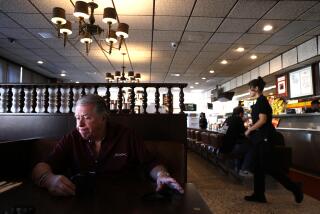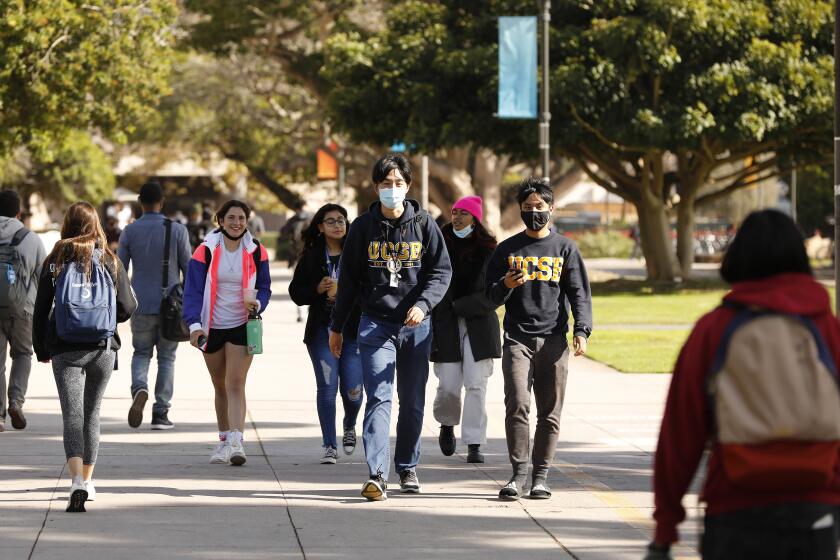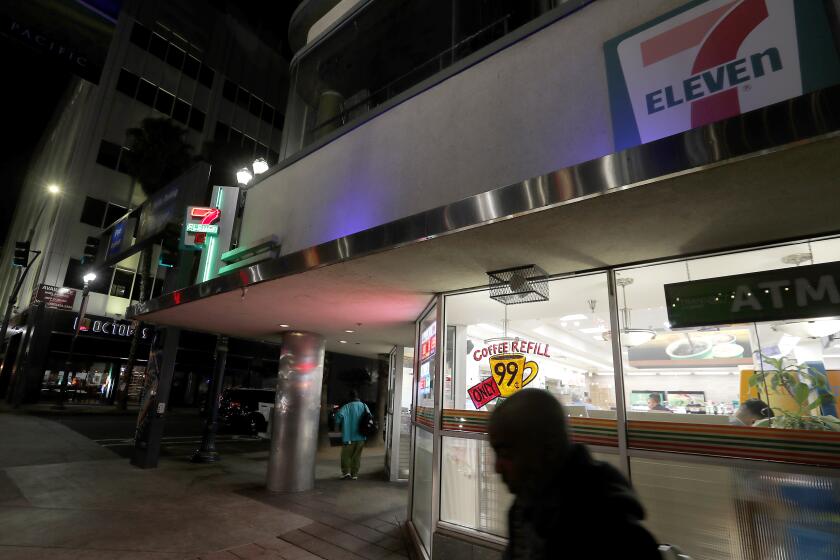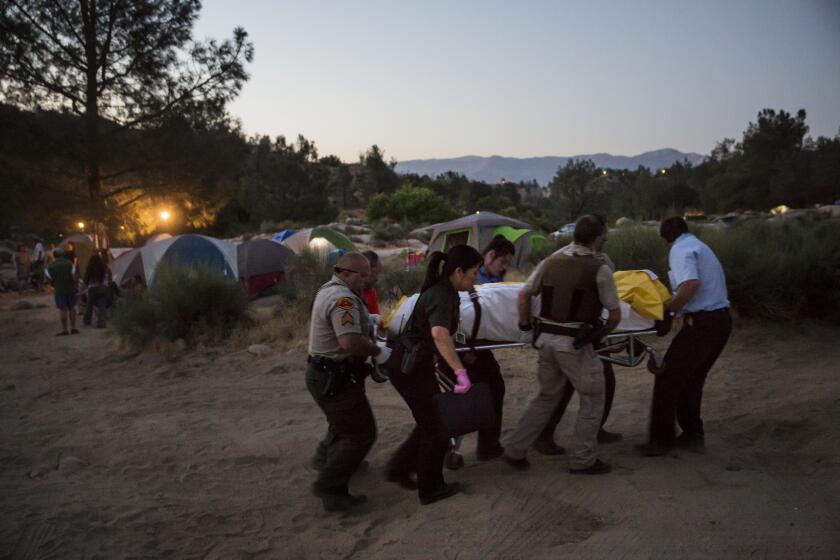County Studies Idea of Leasing Private Hospitals’ Beds
As they endeavor to overhaul their troubled health care system, Los Angeles County officials are quietly weighing a proposal to lease hundreds of beds from private hospitals, so they can build a dramatically downsized and less expensive replacement for the aging County-USC Medical Center.
County officials confirmed Tuesday that they are taking very seriously a proposal by California Hospital Medical Center and White Memorial Medical Center, which have offered as many as 200 hospital beds and the trained medical staff to go with them.
But the officials acknowledged that the proposal, submitted in a Jan. 15 letter to Health Services Director Mark Finucane, is likely to intensify the heated debate over how to replace the mammoth hospital on the northeastern outskirts of downtown. The hospital is licensed for more than 2,000 beds but uses only about half of them.
A public hearing on how to proceed with the replacement project is set for today after 32 years of discussions about the need for a new flagship county hospital, nine years of serious negotiations and more than 100 studies. The focus of the meeting will be Finucane’s recent proposal that the county build a $1.1-billion, 750-bed replacement facility, which is far smaller than earlier plans called for but still not small enough, according to some county officials.
Administrators at California Hospital and White Memorial said Tuesday that their proposal was offered to assure them a seat at the table during the replacement project negotiations.
In their letter, the administrators said they share a goal with the county of providing a safety net for its poorest residents. Such a public-private partnership “would point toward the collaborative resolution of [that] major health care service issue,” they wrote.
They also said building a smaller replacement hospital of perhaps 500 or 600 beds would save the county considerable construction and operational costs, and help them find uses for their many empty beds.
“Looking at mutual survival, we wanted to encourage some dialogue on how to maximize available resources while at the same time recognizing the need to replace [County-USC],” said Melinda Beswick, president of California Hospital. “Our intention was to pique the interest of all the stakeholders . . . so we can really, truly transform the public health system.”
Board of Supervisors Chairman Zev Yaroslavsky said he plans to bring up the proposal for discussion during today’s meeting.
“We need to take a very, very hard look at this,” said Yaroslavsky, who has told Finucane he has not made a compelling case why a 750-bed medical center is needed.
Yaroslavsky said a partnership with private hospitals is just the kind of health care innovation the county needs to create under the terms of the $364-million federal bailout of the nearly bankrupt system.
But others, including Supervisor Gloria Molina, still support having one centralized medical center complex, despite the county’s efforts to increase the role of the private sector in the county’s health system.
Molina, who represents the district that includes the hospital, said she still favors the 750-bed facility proposed by Finucane and a panel of private-sector experts he hired, in part because the county needs the money it gets from hospital patients and their insurance revenues.
As for the proposal by the two private hospitals, Molina said she only received it Tuesday and had no immediate comment. Her chief legislative deputy, Gerry Hertzberg, warned that the county health department has proposed similar public-private partnerships in the past, without success.
“It must be approached with extreme caution, due to issues of cost and [service] reliability,” Hertzberg said.
Although no decision will be made immediately on the size or configuration of a new hospital, today’s hearing marks “a huge step” in the sometimes tortuous process of replacing the medical complex that is the centerpiece in both the county’s safety net for the poor and its trauma network for all residents, Finucane said.
The Depression-era landmark, considered the busiest public hospital in the U.S., suffered extensive damage in the Northridge quake. The county embarked on construction of a 946-bed replacement hospital, but the supervisors ordered a halt to that $1.2-billion project in 1995 as the county’s health and financial crises worsened.
Some plans in recent years have called for a new hospital with as many as 1,400 beds.
More to Read
Sign up for Essential California
The most important California stories and recommendations in your inbox every morning.
You may occasionally receive promotional content from the Los Angeles Times.





